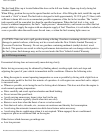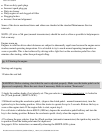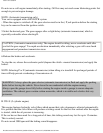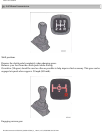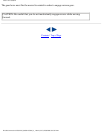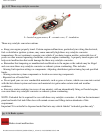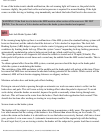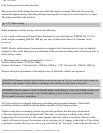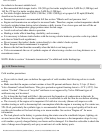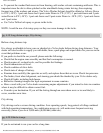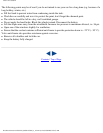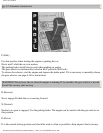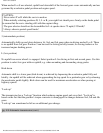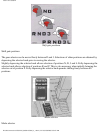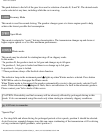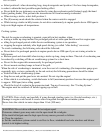
1993 Volvo 850 GLT
the vehicle to the most suitable level.
● Recommended hitch tongue load is 110 (50 kgs) for trailer weights below 2,650 lbs (1,200 kgs) and
165 lbs (75 kgs) for trailer weights above 2,650 lbs (1,200 kgs).
● For trailer weights between 2,650-3,300 lbs (1,200-1,500 kgs) a top speed of 50 mph (80 km/h)
should never be exceeded.
● Increase tire pressure to recommended full See section "Wheels and load pressure. tires".
● Engine and transmission are subject to increased loads. Therefore, engine coolant temperature should
be closely watched when driving in hot climates or hilly terrain. Use a lower gear and turn off the air
conditioner if the temperature gauge pointer enters the red range.
● Avoid overload and other abusive operation.
● Hauling a trailer affects handling, durability, and economy.
● It is necessary to balance trailer brakes with the towing vehicle brakes to provide a safe stop (check
and observe State/Local regulations).
● Do not connect the trailer's brake system directly to the vehicle's brake system.
● More frequent vehicle maintenance is required.
● Remove the ball and drawbar assembly when the hitch is not being used.
● Volvo recommends the use of synthetic engine oil when towing a trailer over long distances or in
mountainous areas.
NOTE: Refer to section "Automatic transmission" for additional trailer hauling tips.
pg. 4:18 Winter driving
Cold weather precautions
● If you wish to check your car before the approach of cold weather, the following advice is worth
noting:
● Make sure that the engine coolant contains at least 50 percent antifreeze: that is, 5.3 qts. (5 liters)
Volvo Genuine Coolant/Antifreeze. This gives protection against freezing down to -31°F (-35°C). See
section "Coolant". The use of "recycled" antifreeze is not approved by Volvo. Different types of
antifreeze may not be mixed.
● Try to keep the fuel tank well filled - this prevents the formation of condensation in the tank. In
addition, in extremely cold weather conditions it is worthwhile to add fuel line de-icer before refueling.
● The viscosity of the engine oil is important. Oil with low viscosity (thinner oil) improves cold-
weather starting as well as decreasing fuel consumption while the engine is warming up. For winter use,
5W-30 oil, particularly the synthetic type, is recommended. Be sure to use good quality oil but do not
use this cold-weather oil for hard driving or in warm weather. See section "Engine oil" for more
information.
● The load placed on the battery is greater during the winter since the windshield wipers, lighting, etc.
are used more often. Moreover, the capacity of the battery decreases as the temperature drops. In very
cold weather, a poorly charged battery can freeze and be damaged. It is therefore advisable to check the
state of charge more frequently and spray an anti-rust oil on the battery posts.
file:///K|/ownersdocs/1993/1993_850GLT/93850_4_15.html (4 of 6)12/30/2006 9:43:03 AM



